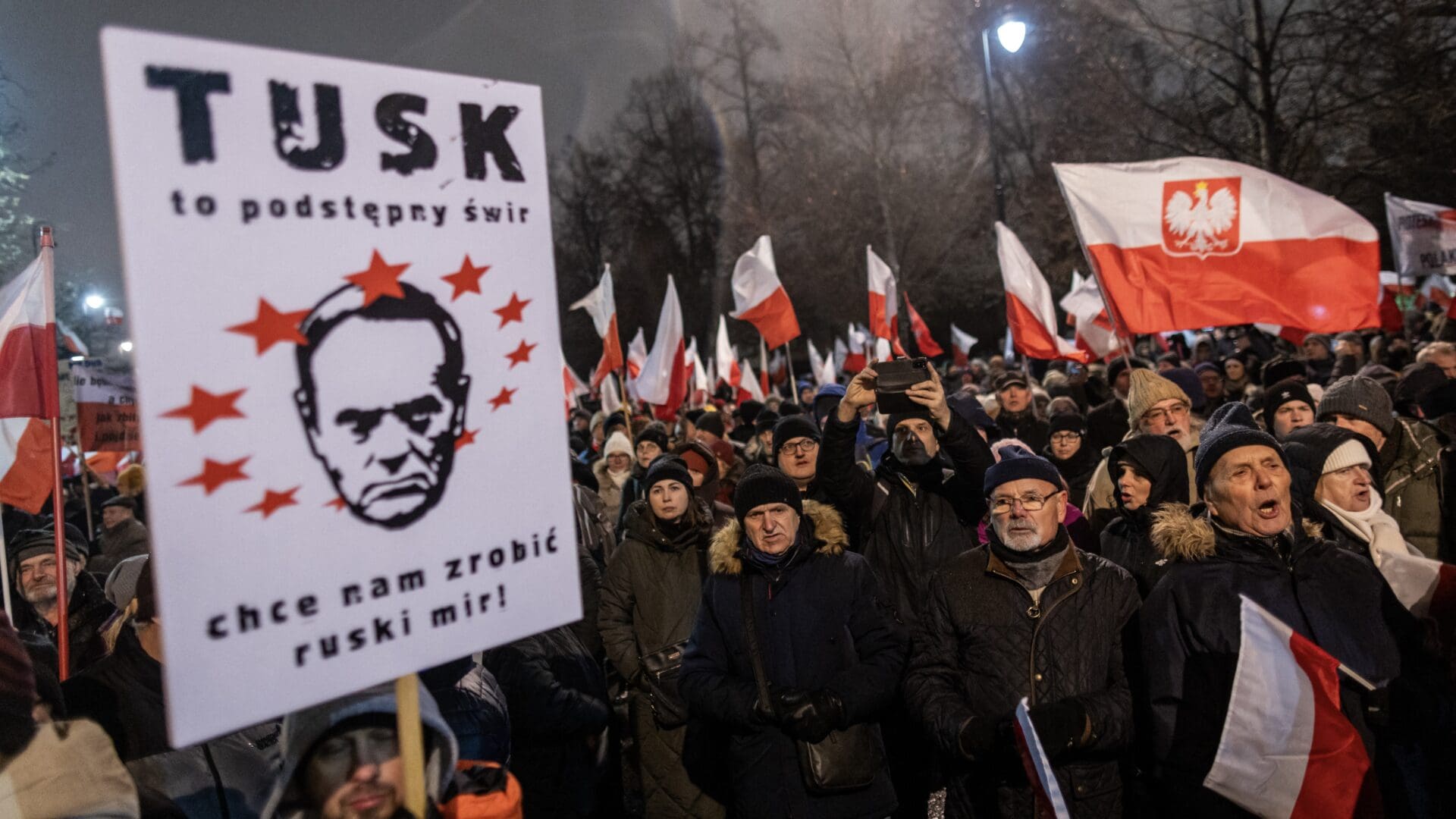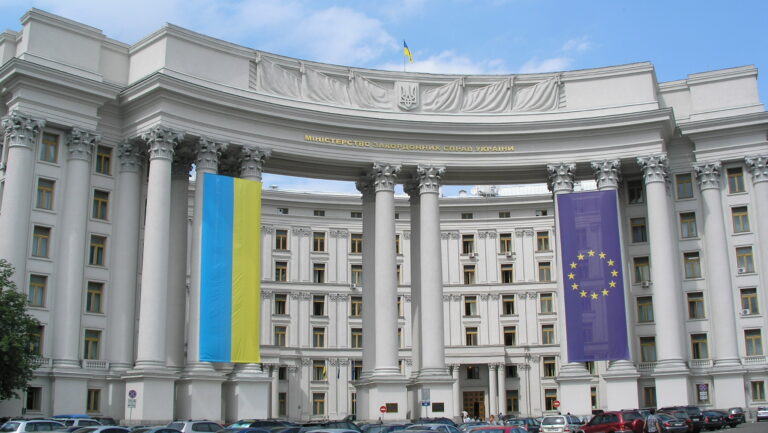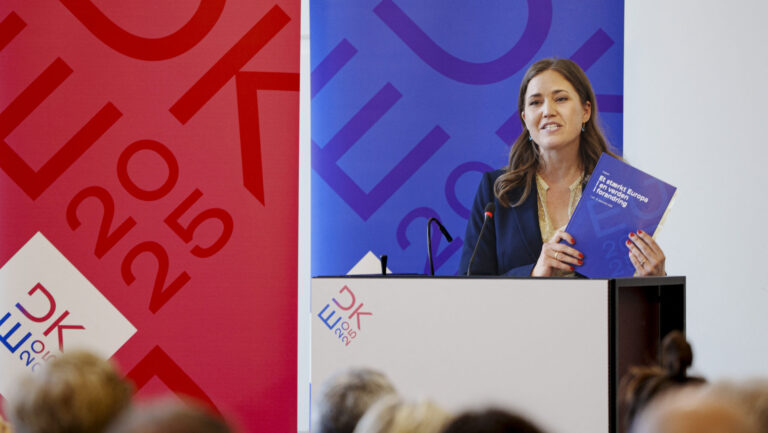After recent events in Poland, another left-wing government has opted to initiate a campaign against media outlets critical of its policies. The Spanish Socialist Workers’ Party (PSOE), led by Pedro Sánchez, has chosen to prohibit opposition journalists from attending its events. Furthermore, the Socialist-led cabinet is currently attempting to bar critical press from parliament, as reported earlier by The European Conservative.
After the right-wing People’s Party, which won early elections in July, failed to form a government, Pedro Sánchez, clinging to power, has reached a compromise with Catalan separatists that the vast majority of Spaniards cannot accept. The left-wing politician has offered amnesty to pro-independence Catalan leaders and pledged to hold a referendum on the region’s secession. As part of the agreement, the government will also forgive a significant portion of the region’s accumulated debt to the state, totalling around €15 billion.
The deal, perceived by many Spaniards as a betrayal of the country, has been the focal point of ongoing anti-government protests in major Spanish cities since November. On New Year’s Eve, a demonstration was organized in front of the Socialists’ headquarters in Madrid, where protestors beat up an effigy of Pedro Sánchez to express their disapproval of the government’s policies.
The PSOE denounced the events as incitement to hatred and filed a complaint with the Public Prosecutor’s Office, which opened an investigation into the case last week.
Simultaneously, the Socialists announced that media organizations that had attended the demonstration in Madrid and covered the event would no longer be permitted to participate in party events.
‘Yes to journalism, no to a hateful press,’ they stated, adding that they had already revoked the accreditation of the newspapers in question. They further declared their intention to seek a ban on these newspapers from both the central and autonomous community parliaments. The goal, PSOE claims, is to ’prevent them from continuing to incite hatred among Spanish citizens.’
Meanwhile, the Polish government, led by former European Council President Donald Tusk, which came to power at the end of last year, is not remaining passive either. The cabinet, in collaboration with various government agencies, initiated an attack on Polish public television, radio, and the state news agency PAP back in December. In mid-December, the newly appointed Minister of Culture announced the dissolution of the public media, citing its role as a mouthpiece for the former ruling Law and Justice (PiS) party. The crackdown on dissent in Poland has escalated to the extent of two former government ministers being arrested last week—former Interior Minister Mariusz Kamiński and his deputy, Maciej Wąsik.
In response to the clearly politically-motivated prosecution of the ex-ministers, reminiscent of Poland's darkest Communist era, tens of thousands of people took to the streets protesting against Donald Tusk and his government, demanding the release of the imprisoned politicians. Polish President Andrzej Duda has committed to pardoning the two incarcerated politicians.
’For the first time in 35 years, since the fall of communism and the great victory of Poles over totalitarianism, we have political prisoners in Poland,’ former Prime Minister Mateusz Morawiecki stated. ’Mariusz Kamiński and Maciej Wąsik are victims of the political vendetta waged by Donald Tusk's new government. I appeal to the democratic community of the West not to passively observe what is happening in Poland today.’
It is worth noting that the European Union, often vocal about the rule of law and freedom of the press in countries led by right-wing parties, has never condemned the questionable actions of left-wing governments. Despite the blatant unlawfulness of his government’s actions, Donald Tusk stated in a recent interview that 'the most important thing is to restore the rule of law in Poland.' Joe Biden was also succinct in his remarks on the events in Poland, stating that things were 'very good' in the Central and Eastern European country.
Marek Wałkuski on Twitter: "Poproszony przeze mnie o komentarz do zmian politycznych w Polsce i przejmowania władzy przez bardziej przychylny Unii Europejskiej rząd, prezydent Joe Biden odpowiedział. "Uważam, że to bardzo dobrze". @PR24_pl pic.twitter.com/us34YZjYLh / Twitter"
Poproszony przeze mnie o komentarz do zmian politycznych w Polsce i przejmowania władzy przez bardziej przychylny Unii Europejskiej rząd, prezydent Joe Biden odpowiedział. "Uważam, że to bardzo dobrze". @PR24_pl pic.twitter.com/us34YZjYLh
The parallel decisions of the Polish and Spanish governments exhibit both similarities and differences. Firstly, these are two administrations that failed to secure electoral victories yet managed to come into power through various backroom deals.
In this context, the attempt to stifle critical voices is not surprising.
When examining political trends in Europe, it becomes evident why Brussels and the mainstream liberal media are not outspoken against them. Across the continent, recent crises and misguided left-wing responses have contributed to the strengthening of right-wing movements in almost every country. There is a substantial likelihood that a genuine right-wing shift will occur in Europe following the upcoming European elections this summer. This prospect is, of course, not viewed favourably by the international left, which tacitly supports any measures aimed at silencing right-wing voices.
The Polish example is also seen as encouraging by the Hungarian opposition, and they do not hide this fact. Last week, Márton Tompos, a member of parliament for the left-wing Momentum party, stated in a Facebook post that in the event of a potential change of government, similar measures could be expected in Hungary, such as the disregard for the rule of law and freedom of the press.
The Hungarian left has not shied away from attacks on the media either. One of the largest such actions took place in 2018, when a group of opposition MPs tried to enter the Budapest headquarters of the Hungarian public television to read out a list of their demands to the government, such as joining the European Public Prosecutor's Office or securing the ‘independence’ of the public media. The ’siege’ of the television headquarters by opposition MPs has been a memorable moment in Hungarian political history, with many remembering, for example, the ’death throes’ of socialist MP Ágnes Kunhalmi after she ran into the closing door of a studio in the building. ’The bouncing off of the door was a perfect reflection of how every attempt by the opposition to date has bounced off of public media,’ Index wrote in its report at the time.
The opposition politicians, led by Bernadett Szél and Ákos Hadházy, were subsequently removed from the building by the security service after a prolonged 'scuffle,' another incident that will be remembered, thanks to the fact that the events were broadcast on social media.
Hungarian public media has been the target of attacks from the left for years, with the opposition accusing the governing parties of using the platform as a mouthpiece rather than a public service broadcaster, similarly to what is happening now in Poland. Following the outbreak of the war in Ukraine, another demonstration was organized in front of the headquarters, with key speakers being the main protagonists of the 2018 siege. In these demonstrations, public media is regularly accused of spreading Russian disinformation and propaganda. This pattern can also be observed at the international stage, with liberal press outlets, which essentially outnumber conservative ones, branding any opinion differing from the pro-war position of the Western mainstream as Russian propaganda.
Related articles:








